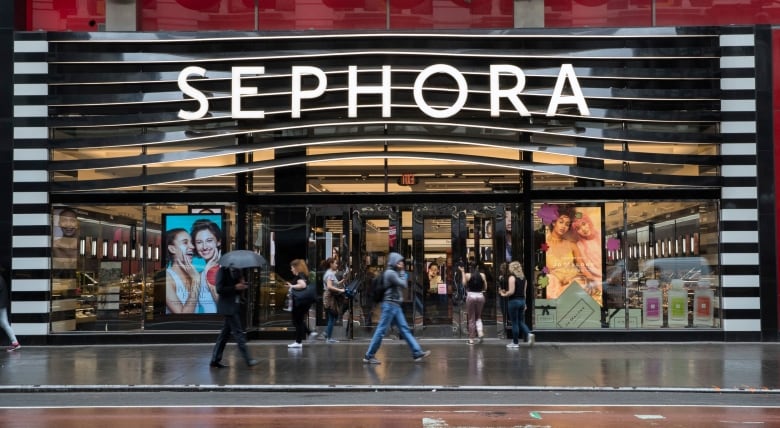
The Alberta government is boosting funding for health, K-12 education, public safety and paying down debt as it wraps up the current fiscal year with an anticipated $10-billion surplus.
In the first budget tabled under Premier Danielle Smith, three months before a provincial election, the United Conservative Party government also signaled it will bring back legislation requiring balanced budgets, save for exceptional circumstances.
"We're securing the health and education of Albertans by increasing access to family doctors, surgeries and emergency services," Finance Minister Travis Toews said at an embargoed news conference on Tuesday.
"And making sure our children and grandchildren have the education system they need to reach their full potential."
Should it pass as proposed, Alberta's $68.3-billion budget for 2023-24 would include about a four per cent spending increase from its forecasted expenses for the current fiscal year.
It would leave the province with a $2.4-billion surplus by March 2024.
After three years of trying to rein in spending on public services and cut the size of the public service, the UCP government is increasing health-care spending by nearly four per cent, or close to $1 billion.
An estimate of full-time equivalent workers pegs the number of Alberta Health Services employees growing by nearly 3,600 from April 2023 to March 2024.
Although some of that cost is offset by an increase in federal government health transfers, the budget does not account for a new bilateral health agreement revealed on Monday.
The government's targets include more paramedics and ambulances, churning through more surgeries to reduce inappropriately long wait times, more home-care workers and expanding primary care.
Toews said everywhere he's travelled in Alberta, people tell him access to health care is an issue.
Growing urban school boards that have spent the past three years trying to educate more students while inflation drove up costs and funding remained nearly flat may have more room to breathe next year.
Operating funding from the government will rise by more than five per cent from the current year's forecast, Toews said.
The budget includes increased funding for student transportation – including new funding for private schools to bus students.
The government estimates the province's education sector will grow next year by 650 full-time equivalent teachers and 1,375 support workers, such as educational assistants and bus drivers.
Although the government pledges to increase K-12 education funding by nearly $685 million during the next three years, Alberta's education minister has previously said a contentious school funding formula will remain unchanged.
After three years of painful cuts to the province's post-secondary institutions, that funding will rebound, too. As part of a three-year plan to add 10,000 post-secondary seats across the province, public funding to schools will rise by about 0.6 per cent from the current year.
Although the province is capping average tuition increases at two per cent per year, starting next year, the budget shows that institutions' own revenues are still expected to pay for an increasing proportion of their costs.
After the government signalled an increased focus on public safety, the budgets of the ministries of justice and public safety and emergency services are collectively rising by 12 per cent next year.
Funding is targeted to pay more Crown prosecutors and judges, hire more sheriffs, run jails and fight organized crime. This will include "therapeutic living spaces," where inmates can get addictions treatment while incarcerated.
There is funding to expand First Nations-run police services, and $3 million for municipalities that want to explore establishing their own police service.
Although non-renewable resource revenues are expected to be lower in 2023-24, the $18 billion expected from royalties would still be the second-largest such windfall on record, if it happens, Toews said.
He did not say how Alberta would maintain public services at these levels, should the price of oil fall far below the estimated average price of $79 US per barrel next year.
New fiscal framework legislation coming
Toews said the government will also aim to enshrine balanced budgets in provincial law.
A bill to be tabled in the spring legislative sitting would only allow Alberta to plan for a deficit if revenues drop sharply and suddenly.
The new "fiscal framework" would allow a government to post a year-end deficit if the cost of a disaster exceeds contingency funds, revenue is more than $500 million lower than expected, or the government is on the hook for a huge legal settlement.
The government would also be limited to increasing yearly expenses less than the sum of inflation rates and population growth.
The government also plans to create a new "Alberta Fund" to limit how it can spend any surpluses.
Half of any extra cash would have to be dedicated to debt repayment.
The rest would go in the Alberta Fund, and could be used only to repay debt, deposit into the Heritage Savings Trust Fund, or "one-time initiatives."
Toews told reporters those "one-time initiatives" would have to align with spending priorities the government lays out in the budget, and bristled at the suggestion it could be used as a slush fund.
Smith's government also plans to change how money is saved in the Heritage fund.
Legislation is also coming that would require the government to keep all interest earned in that fund. Right now, the law says it should only keep enough interest to inflation-proof the fund.
Budget documents say the government intends to re-invest this year's and last year's interest into the fund, which is about a $2-billion injection. That would bring the fund's value to $20 billion by March 31, 2024.
Alberta government projects $2.4-billion surplus for 2023-24 in pre-election budget - CBC.ca
Read More















